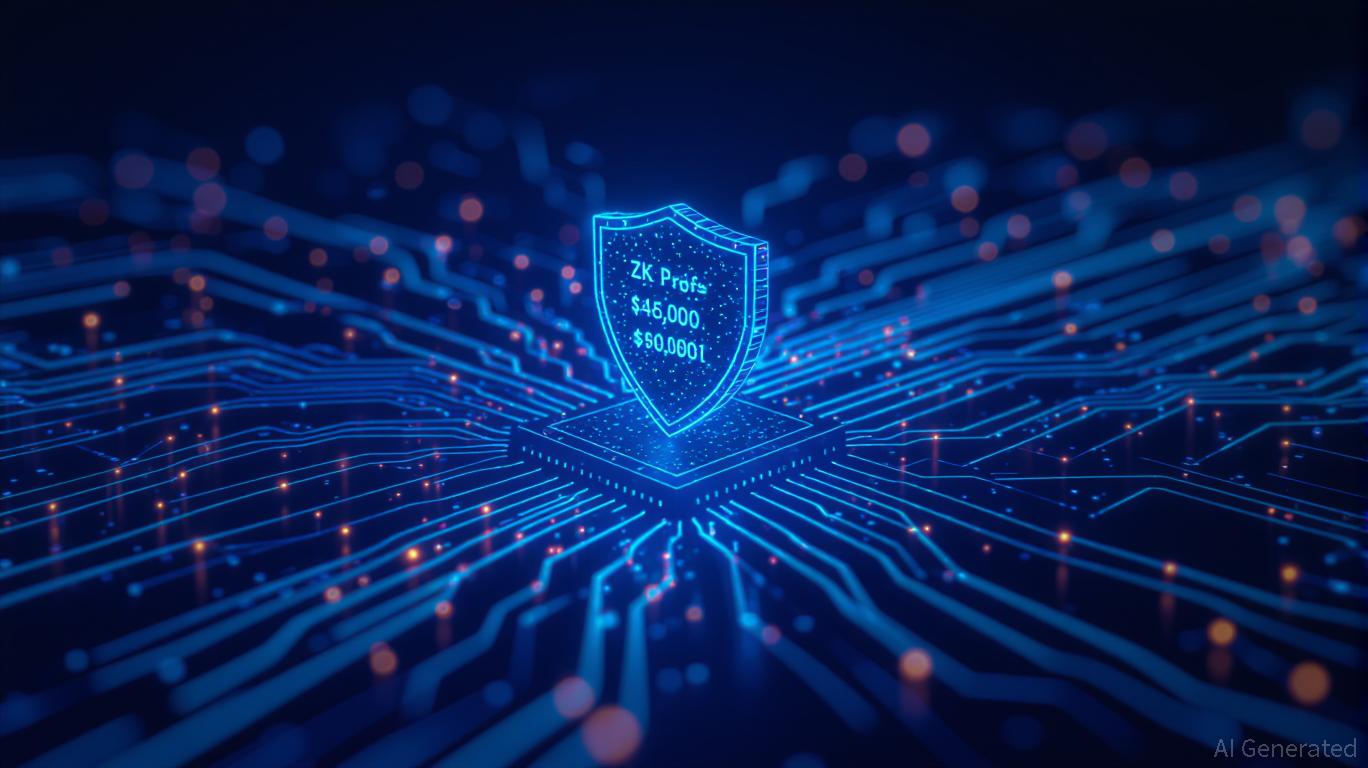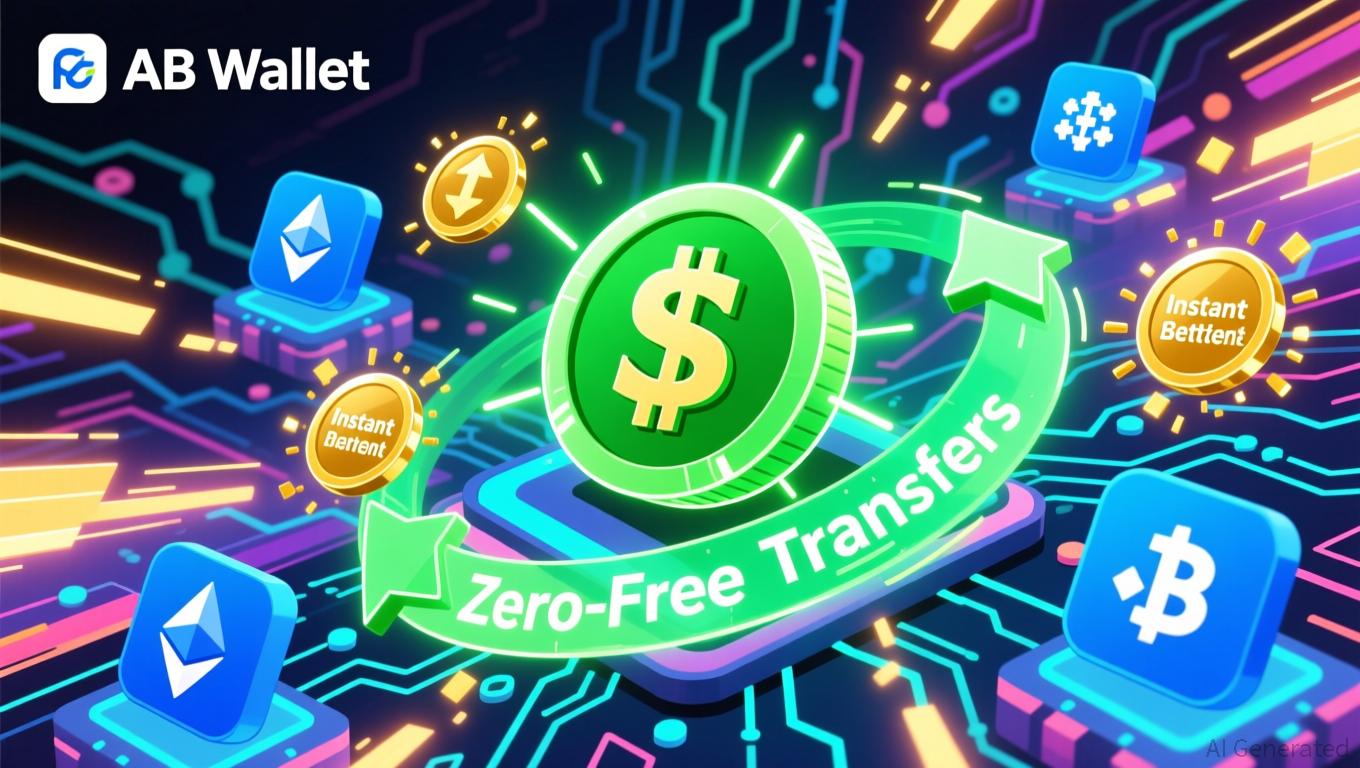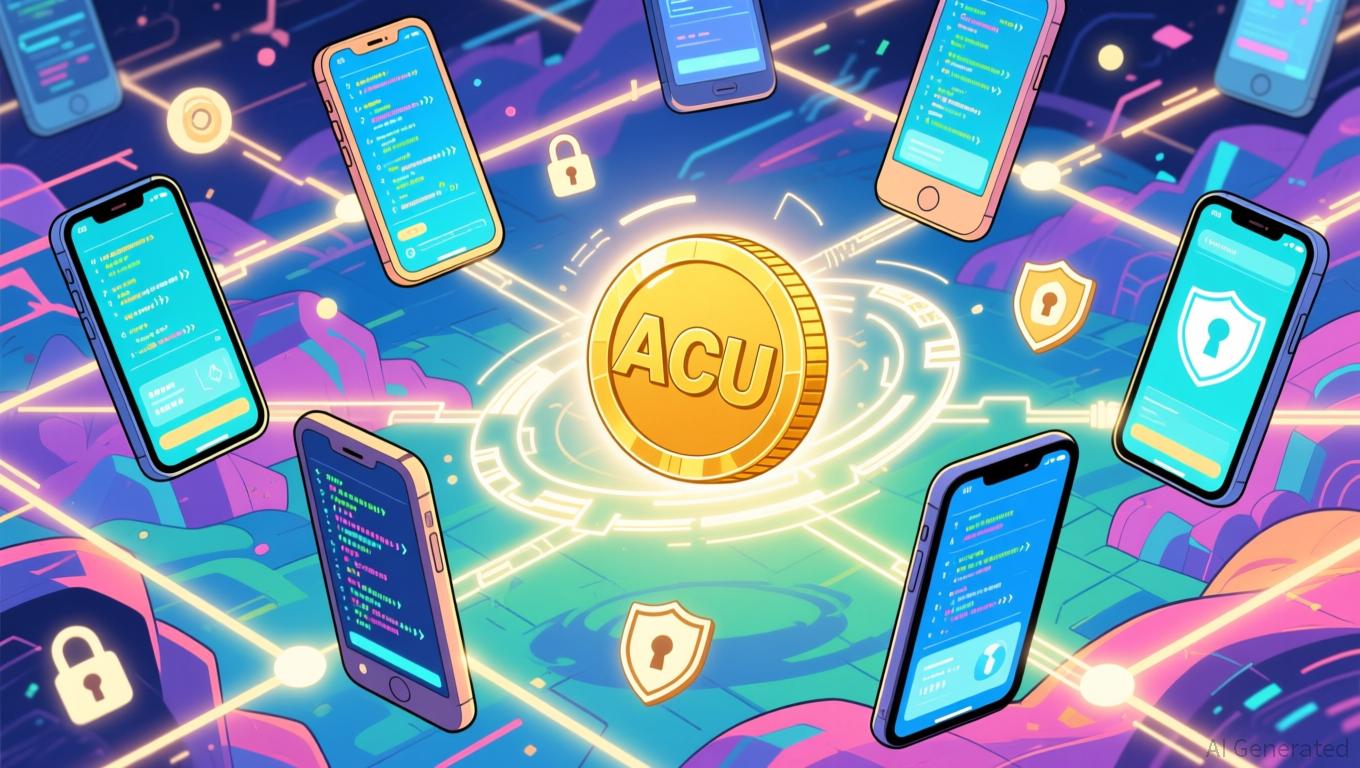Vitalik Buterin's Advances in Zero-Knowledge Technology and the Prospects for Blockchain Scalability: An Investment Outlook for 2025
- Vitalik Buterin's GKR protocol breakthrough reduces ZK verification costs by 10-15x, enabling 43,000 TPS on ZKsync with near-zero fees. - ZK Layer 2 market grows at 60.7% CAGR to $90B by 2031, driven by Ethereum's "Lean Ethereum" optimizations and institutional adoption. - ZKsync, StarkNet, and Immutable lead DeFi/gaming expansion, but face regulatory risks (Zcash scrutiny) and technical barriers to mass adoption. - Investors must balance ZK's scalability potential with execution risks, regulatory uncert
Vitalik Buterin's Technical Contributions: Ushering in a New ZK Era
Vitalik Buterin’s advancements with the GKR protocol have transformed the cost structure of ZK verification. The GKR protocol has theoretically lowered verification expenses and hardware demands by as much as 15-fold, and by 10-fold in real-world scenarios, empowering platforms like ZKsync to handle 15,000 transactions per second (TPS) with minimal gas fees
Buterin’s vision goes beyond just scaling. He has suggested combining ZK proofs with multi-party computation (MPC), fully homomorphic encryption (FHE), and trusted execution environments (TEE) to bolster security for applications like voting and confidential state queries

Market Adoption and Investment Trends: ZK’s Accelerated Growth
The industry has embraced these innovations with enthusiasm. The Atlas upgrade for ZKsync in Q3 2025 increased TPS to 43,000, while StarkNet’s Total Value Locked (TVL) soared to $72 million, tripling its previous value,
Experts anticipate the ZK Layer 2 sector will expand at a 60.7% compound annual growth rate,
Competitive Landscape: Leading ZK Projects and Ongoing Challenges
The ZK sector is led by zkSync, StarkNet, and Immutable, all of which are branching into DeFi and gaming. For example, ZKsync’s token (ZKS) jumped 150% in November 2025 following the Atlas upgrade,
Investment Risks and Regulatory Considerations
Despite the promise of ZK, several risks persist. Regulatory ambiguity—especially surrounding privacy coins—could impede further adoption. For instance, Zcash’s privacy features have attracted scrutiny from international regulators
Assessing the Investment Potential
The investment outlook for ZK technologies depends on weighing these risks against their transformative capabilities. With Ethereum’s upgrades
For those prepared to manage these complexities, ZK technology presents a strong long-term investment case. Projects that align with Ethereum’s “Lean Ethereum” roadmap, such as ZKsync and StarkNet, are well-placed to benefit from network effects and institutional capital.
Conclusion
Vitalik Buterin’s progress in ZK has ushered in a new chapter for blockchain scalability, with platforms like
Disclaimer: The content of this article solely reflects the author's opinion and does not represent the platform in any capacity. This article is not intended to serve as a reference for making investment decisions.
You may also like
Bitcoin News Update: Grayscale Lists Publicly, While DCG Maintains Authority Through Dual-Class Share Structure
- Grayscale files for IPO to list as "GRAY" on NYSE, signaling crypto sector's public market push amid regulatory clarity. - Dual-class structure grants DCG 10x voting power over public shares, maintaining control as a "controlled company." - Proceeds will acquire membership interests in Grayscale Operating LLC, not directly fund operations. - Projected $30-33B valuation faces scrutiny over DCG influence, despite post-government shutdown crypto market rebound. - Morgan Stanley-led underwriters highlight Wa

AB's Rocket Ship: Stablecoins, ETFs, and Optimism About the Fed Drive Ongoing Rally
- AB shares surged 30% driven by USD1 stablecoin integration and ETF expansion, boosting liquidity and user engagement. - Zero-fee USD1 transfers and cross-chain wallet upgrades enhanced AB's utility, linking ecosystem activity to token demand. - Fed rate-cut expectations and AB's 0.68 equity beta position it to benefit from dovish policy, despite Saba Capital's stake reduction. - AUM surpassed $869B in October 2025, with private markets targeting $90-100B by 2027, reinforcing growth potential amid digital

Zero-Knowledge Startup Secures $9M Funding, Introduces Gamified Verification to Bridge Privacy and Compliance
- Zero-knowledge identity protocol Self raised $9M in seed funding led by Greenfield Capital and SoftBank's fund, alongside angel investors like Casey Neistat and Polygon's Sandeep Nailwal. - The startup launched a points program incentivizing on-chain identity verification using ZKPs and verifiable credentials, partnering with Google , Aave , and Velodrome to bridge privacy-compliance gaps. - By enabling biometric passport verification and Aadhaar integration without exposing sensitive data, Self aims to
Gavin Wood Supports Acurast’s Decentralized Computing Revolution Driven by Smartphones
- Acurast, a smartphone-based decentralized computing project, secured $11M in funding led by Ethereum co-founder Gavin Wood and others. - The platform launched its mainnet on November 17, aiming to transform 150,000 smartphones into secure compute nodes for confidential tasks. - By leveraging hardware-backed security and eliminating intermediaries, Acurast challenges traditional data centers while addressing privacy and environmental concerns. - Despite scalability challenges, the project's 494 million pr
